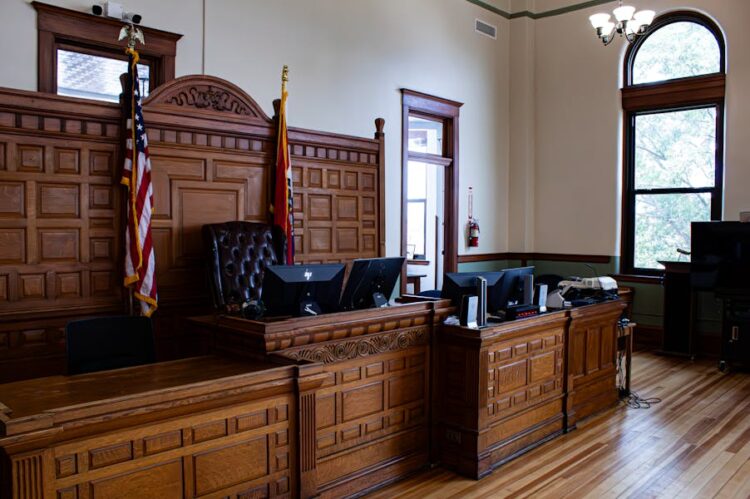The legal systems of the United States and the United Kingdom have some notable differences, despite both being common law systems that originated from English law. If you are an American living in the UK, or vice versa, here are some of the main differences between the two.
Sources of Law
In the US, the primary source of law is the written constitution. The US Constitution lays out the structure of the federal government and protects civil rights and liberties through the Bill of Rights and subsequent amendments. Statutes, regulations, and case law are considered secondary sources of law.
In contrast, the UK does not have a single written constitution. Instead, the sources of UK law include legislation passed by Parliament, common law developed through court cases, and prior to 2024, EU law. The UK constitution is uncodified and consists of shared political conventions along with key statutes like the Magna Carta and Bill of Rights.
Branches of Government
The US has three separate federal branches—the legislative, executive, and judicial. These branches have checks and balances on each other to prevent any one branch from becoming too dominant.
The UK also technically has three branches—Parliament (legislature), the Prime Minister and Cabinet (executive), and the courts (judiciary). However, in practice, the executive and legislative branches are closely aligned in the UK since the Prime Minister is an elected Member of Parliament. The UK does not have strict separation of powers like in the US.
Judges
US judges are appointed, while most UK judges are selected based on merit. Supreme Court justices in the US are nominated by the President and confirmed by the Senate. Lower federal judges are also appointed this way.
In the UK, judges are appointed by the King, who is advised by the current Prime Minister, who is given recommendations from a dedicated selection commission. Selection based on merit aims to ensure the judiciary is independent from politics.
Rights and Freedoms
The US Bill of Rights provides Americans with specific civil liberties like freedom of speech, press, religion, and the right to bear arms. These rights are constitutionally guaranteed.
The UK has no single constitutional document outlining citizens’ rights, though the Human Rights Act 1998 incorporated the European Convention on Human Rights into UK law. Some UK rights and liberties are also protected by the common law.
Criminal Law
The US is largely governed by comprehensive federal criminal codes. There are separate federal and state courts and prisons. UK criminal law consists of legislation passed by Parliament, as opposed to detailed codes.
The UK has fewer criminal statutes than US states or the federal system. UK criminal cases are usually tried in magistrates’ or Crown courts.
Legal Profession
In the US, licensed attorneys can provide all legal services required.
The UK has a divided legal profession consisting of solicitors, like PA Duffy & Co solicitors who are UK based in Northern Ireland in a town called Dungannon. They provide legal advice and assist with transactions, and barristers, who represent clients in court. Solicitors may gain additional qualifications to appear in court as well.
Punishment and Sentencing
The US relies heavily on incarceration, including stringent mandatory minimum sentencing.
The UK has more lenient sentencing policies, lower incarceration rates, and less harsh prison conditions. However, UK sentencing has become tougher in recent decades. Both the UK and most US states have abolished the death penalty.
Precedent
Lower courts in the US are bound by decisions made by higher courts under the principle of stare decisis or precedent.
Lower UK courts are only bound by precedent from courts above them in the hierarchy, not lateral courts. There are also key differences in the reporting and publication of opinions between the two nations.
Trial by Jury
The right to a trial by jury is guaranteed in criminal cases by the 6th Amendment in the US.
In the UK, trial by jury is only available for serious criminal cases heard in the Crown Court. Most minor criminal cases are decided by magistrates in summary proceedings. Civil cases in the UK may also be tried without a jury.
Legal Education
In the US, students must complete three years of law school after their undergraduate degree to qualify as lawyers.
In England and Wales, law is an undergraduate degree that takes three years to complete. Alternatively, students can pursue a one-year Graduate Diploma in Law after another bachelor’s degree.
Case Law
In the US, appellate court decisions set a binding precedent on lower courts.
In the UK, decisions by the Court of Appeal and Supreme Court set precedent for lower courts to follow. However, UK judges can depart from precedent under certain circumstances, which is less common in the US.
Class Actions
US law allows for class action lawsuits where large groups of people with a shared grievance can file a joint suit through representatives. These are complex cases with binding outcomes for all class members.
Class actions are much less common in the UK legal system.
Contingency Fees
Many civil suits in the US are taken on a contingency basis, meaning the attorney receives an agreed percentage of any final award.
Until 1998, contingency fees were prohibited for under Solicitor’s Practice Rules in the UK, except for a few limited cases in the UK. This rule has since been amended and aside from some family law matters, contingency fees have become much more common in civil litigation.
Enforcement of Contracts
US contract law allows for efficient enforcement of agreements between private parties through remedies like punitive damages.
UK contract law focuses more on compensatory damages and does not always enforce restrictive clauses.
Pleading
In US federal courts, extensive pre-trial discovery procedures enable parties to fully investigate claims and defenses.
UK civil pleading requirements are much less exhaustive in the early stages.
These major differences highlight how the US and UK have distinct legal heritage and traditions. The two systems diverged after the American Revolution but still share a common ancestry in English common law. The evolution of the unwritten British constitution compared to America’s codified supreme law has led to variances in areas like rights, governmental structure, legal professions, and sentencing.










